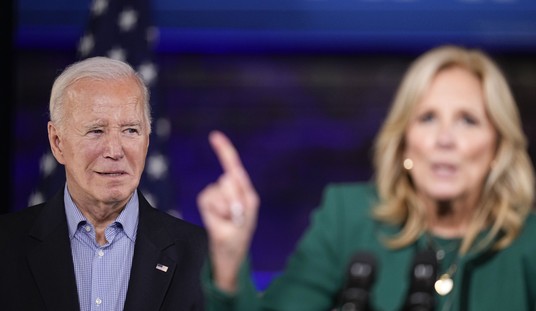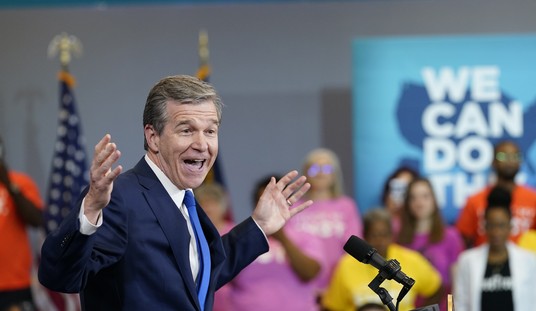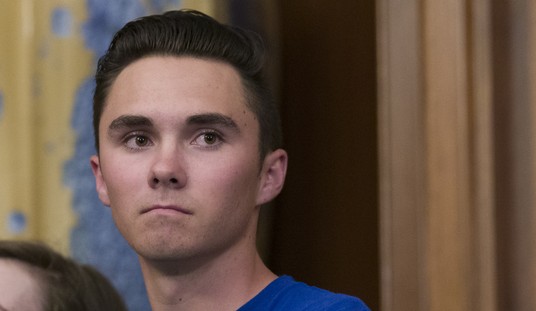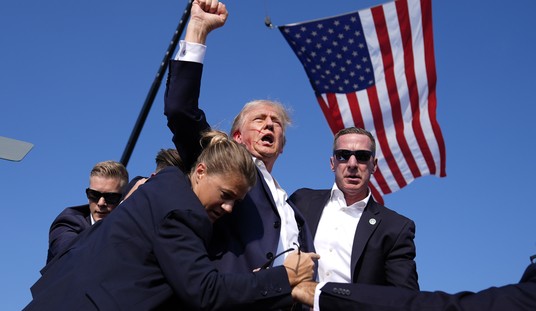The No. 2 at the Israeli Embassy in Washington took the stage at J Street’s gala dinner tonight with a polite, impeccably structured point-by-point barrage of the risks faced by the Jewish state and where the lobbying organization has slipped.
It sparked a battle of sorts at the event, with former Prime Minister Ehud Olmert taking the beginning of his address to slam the Israeli government for sending the diplomat to speak — but then launching into similar points on Iran that provoked the same chilly reaction from the crowd.
Ambassador Barukh Binah, who assumed his duties as deputy chief of mission at the embassy early this year, was introduced with an explanation to the crowd that J Street maintains open dialogue with the Israeli government even if critical of its policies.
“It’s the first public appearance I make in the United States in my current position,” Binah opened to cheers — the last he would receive until the tepid applause at the end of his address.
“I salute those individuals and organizations working for grass-roots improvements within Israel, and I personally attempt these corrections every four years when I cast my vote,” he said. “Sometimes I have it my way, and sometimes I do not. It is called democracy.”
Binah said that the U.S. and Israel share these democratic values. “But unlike your secure existence between these happy shores, an ocean apart from the bad guys, our borders are curved and dusty, and made of missiles and mayhem,” he said. “As we continue to face intolerable threats, we sometimes have to make decisions of life and death. We welcome the opinions of our brethren in the diaspora, especially on issues of Jewish identity and pluralism, but at the end of the day, it is we, the Israelis, who must bear the ultimate burden and may have to pay the ultimate price.
“And we, dear friends and family, have no margins of error; none whatsoever.”
Binah said he approached J Street to remind it of its responsibilities as a lobbying organization that presents a legislative agenda to Congress.
“Thus, when you bring lawmakers to Israel, please make sure that they come out with a full picture,” he said. “You may be critical of settlements, but if you choose to show the most extreme, it behooves you to present the greater mass of moderates as well. If you show them negative aspects of checkpoints, please show as well the catastrophe and grief of terror victims. If you show them Israel’s failings, show them also our triumphs such as the aliyah of the Jewish community of Ethiopia. I urge you to strive for balance, so that these lawmakers may become friends of Israel who might be critical, and not critics of Israel who are not friends.”
The ambassador said he welcomed the “evolution” in J Street’s position on Iran and hoped it would be followed by a policy “that all the options, including a military effort, are on the table” to keep the Islamic Republic from obtaining nuclear capability.
“Likewise, I welcome your position against one-sided resolutions on settlements, and I hope that you will never go back to opposing a veto cast by the Obama administration, like you did in January of 2011,” Binah said.
He also hit at the controversial welcoming of Peter Beinart. “I hope that the leaders of the BDS movement will not be welcomed at J Street, and that all calls for boycott will continue to be refuted,” he said. “They use such appearances as a means of gaining legitimacy, and whatever actually happens in your fora, they report to their supports that they were greeted at J Street with enthusiasm and consent. Please don’t let yourselves be used. They aren’t honest players.”
And he addressed the two-state solution theme of the conference, which included a video played during the dinner of various parties calling for a continuation of the peace process.
“Israel remains committed to achieving peace with our Palestinian neighbors,” Binah said. “We wish them well. Yet, our efforts to directly negotiate all issues are constantly thwarted by Palestinian rejection. We are willing to put all the contentious issues on the table, in order to bring an end to the conflict. But time after time we find out that the metaphoric table was removed, or cut, or blown up in the flames of terror. We urge the Palestinian leadership to lead their people in the arduous path of peace, as true leaders do, and to forgo the game of the past, the game of hatred and virulent incitement.
“It is not a game of political Quidditch that we play here; it is a heavy-duty selection of choices that we must make,” he stressed. “A Hamas government is not a harbinger of peace and neither is an Iranian-backed Hezbollah regime.”
“The proof of the pudding, my friends, is in the eating, and so far we are only fed with the old, stale and hateful anti-Israeli and anti-Jewish slogans, as if nothing is happening,” the ambassador added.
“So, while we cling on to our quest for peace we must be very careful and keep our shields up. Especially when repressive regimes such as Iran’s or Syria’s continue to butcher their own citizenry, like in Tehran 2 years ago and in Homs 2 days ago, especially when they go on spewing their venom, and especially when they strive to build a nuclear arsenal that might attempt, God forbid, to put an end to the Jewish question, this time in the Middle East.”
Binah urged the J Street members to stand by Israel “as Americans, as members of your community, as Jews.”
“For the sake of our forefathers and our future, we must keep our brotherhood strong,” he concluded.
There was some unintelligible yelling after Binah’s speech, when J Street executive director Jeremy Ben-Ami took the podium.
“You give new meaning to the phrase ‘hard act to follow,'” he quipped at Binah.
Ben-Ami launched into a spirited defense of the organization, stressing the organization’s motto that it’s a “pro-Israel, pro-peace” group.
“We wanted a voice that recognized that Israel’s future depends on achieving a two-state solution,” he said. “We wanted to express our voice to say that being pro-Israel doesn’t mean being anti-Palestinian. Being pro-Israel doesn’t mean agreeing with every policy of this Israeli government.”
Ben-Ami, who thanked Binah for his “attendance,” said J Street knows that the present is not the future it wants.
“Our choice is not to sit home and wallow in despair,” he said.
Olmert, the evening’s final speaker, called his own presence at the dinner a “historic” moment for Jewish community in America.
“I’m guessing some of you might not have agreed with everything Mr. Binah said,” he said to cheers. “…The fact that the government decided to send him is the most important thing and this is very significant.”
Olmert thanked the group for inviting him, but said he was “aggravated” that some people congratulated him for accepting the invitation.
“J Street is a legitimate organization which cares for the state of Israel,” the former prime minister said.
Yet when Olmert touched on similar themes of stopping a nuclear Iran like Binah did, he lost the crowd.
“I entirely agree with those who believe that Israel cannot tolerate a nuclear Iran,” he said. “…We’re talking about a nation which openly, formally talks about wiping Israel off the map.”
To deal with the crisis, he said he would “examine, analyze” in a “balanced and determined manner.” He advocated superpowers in the West taking the lead to stop Iran, but said Israel needs to build capacity for action on its own.
“As a last resort, go to the first one,” Olmert said. “I don’t think I need to say more.”
A woman shouted “no war” in the quiet audience.
Olmert brought the crowd back to life by saying that the two-state solution is the “primary responsibility” of Israel — then clarified that it’s not exclusively Israel’s responsibility. “The Palestinians don’t always meet their responsibilities,” he said.
He quipped that “maybe I could get a standing ovation” from the conference crowd if he laid all blame on Israel.
Olmert proceeded to advocate a peace plan starting with 1967 borders and declared that Palestinian Authority President Mahmoud Abbas wants peace.
The third J Street conference had nearly 2,500 registered. It was dwarfed by the American Israel Public Affairs Committee event earlier this month, also at the convention center, which was packed with more than 13,000 registered attendees.
Whereas AIPAC had security checkpoints including metal detectors and hand-searches of all bags, J Street had no such screening.
More than 60 lawmakers from the House and Senate attended the J Street dinner, Ben-Ami said, calling them the “legislative future.”
J Street attendees were to hit Capitol Hill on Tuesday for more than 200 lobbying meetings. AIPAC reported a record 530 lawmaker meetings this year, five short of the total members of Congress.









Join the conversation as a VIP Member